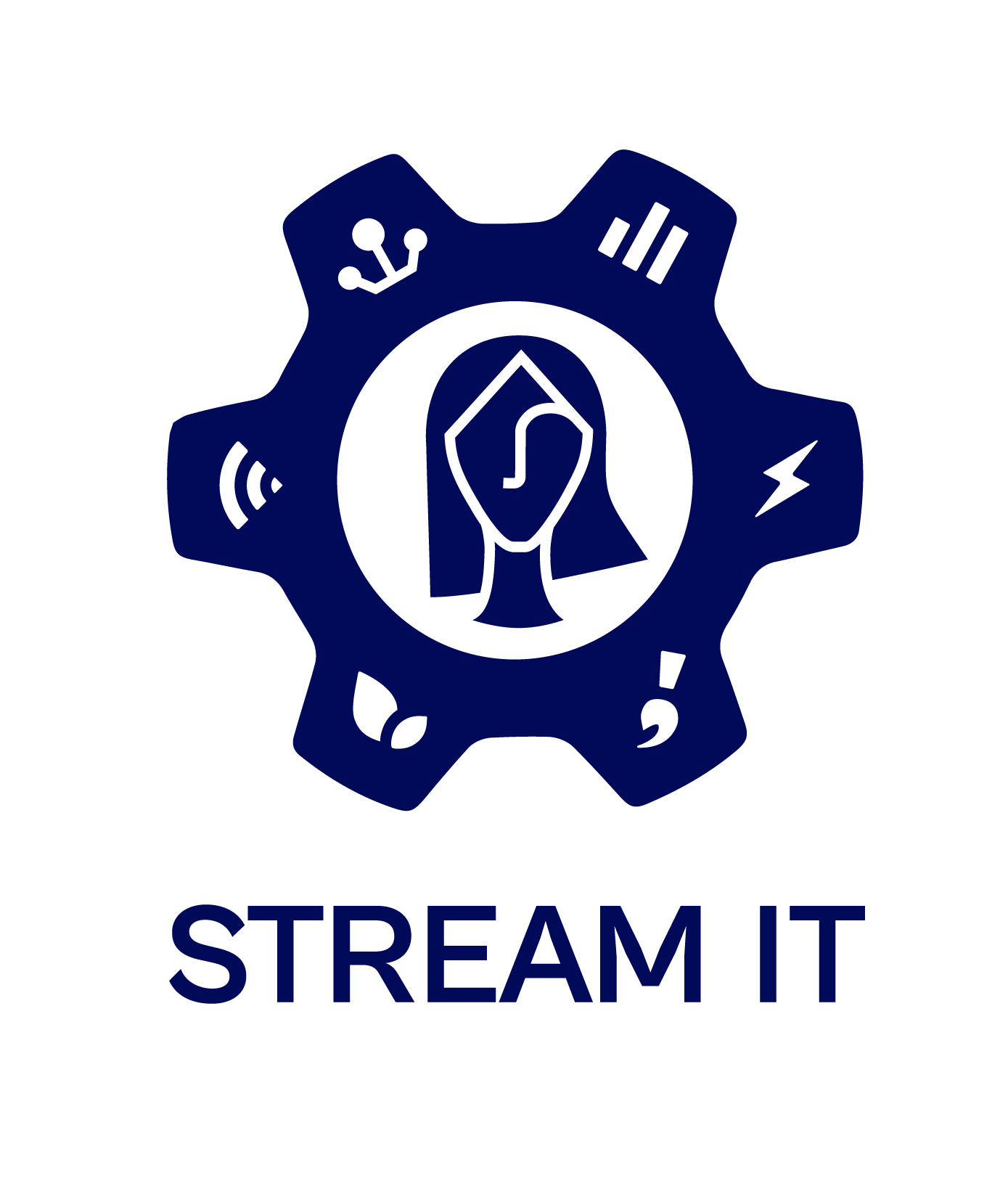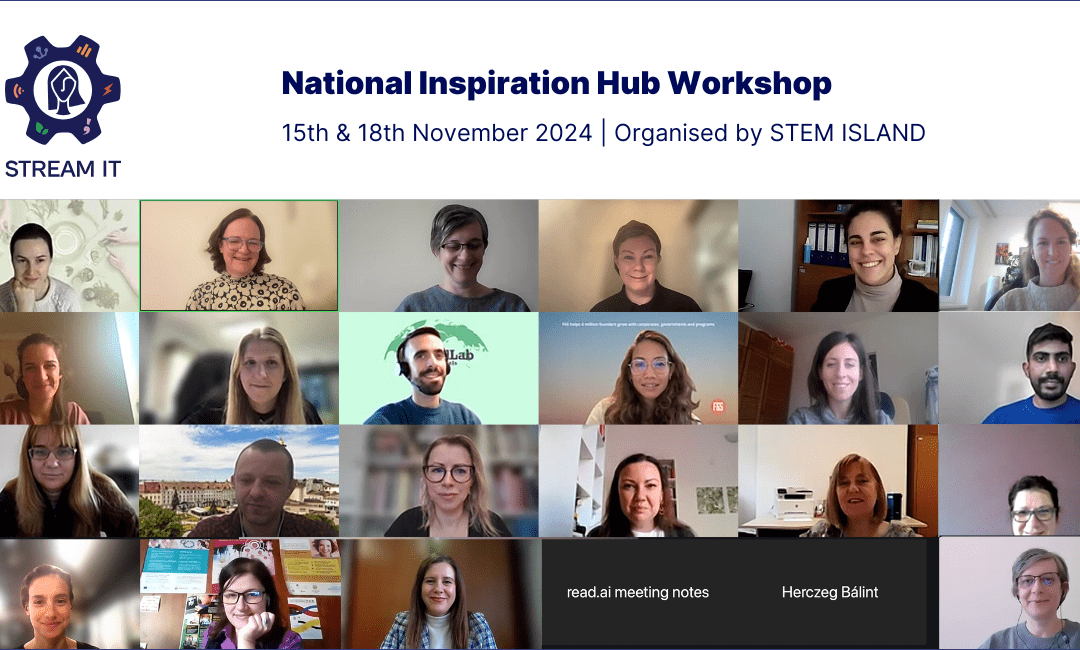On November 15th and 18th, STEM ISLAND organised a workshop for the STREAM IT consortium members with the main objective of elaborating on the D4.2 Toolkit for the establishment and maintenance of the National Inspiration Hubs (NIHs).
The workshop was very fruitful, filled with inspiring discussions, meaningful connections and very interesting questions from the STREAM IT partners on various steps and future planning.
On the agenda was an overview of the National Inspiration Hubs, more precisely focusing on the aims and key concepts of 1) collective teacher efficacy and 2) the ecosystem approach. STEM ISLAND then elaborated on the steps and activities related to establishing the NIHs, namely: 1) forming a steering committee, 2) conducting a needs assessment, 3) developing an action plan with a timeline, and 4) developing webinar content.
Below is an overview of the points of discussion:
Aims for National Inspiration Hubs
The overall aim of the NIHs is to establish an online networking group of STEM teachers and communities for capacity building, activities for sharing and exchanging expertise, experiences, lessons learned, possibly transferable good and best practices, and promoting project results and events beyond the project.
STREAM IT has identified six sub aims for the National Inspiration Hubs
- Fostering Collaboration and Community Engagement
- Empowering Educators as Change Agents
- Addressing gender disparities in STEM
- Building a Sustainable and Scalable Network
- Addressing gender disparities in STEM
- Contributing to a More Equitable Future
Vision for National Inspiration Hubs
The NIHs are envisioned as critical infrastructures to support and collectively empower educators in their role as agents of change, with the goal of supporting teachers to address the persistent gender disparities in STEM education and careers. Thus, any stakeholder can convene a National Inspiration Hub.
Through this initiative, Europe can set a precedent in demonstrating how targeted educational interventions can drive social progress and economic development by ensuring that all students, irrespective of gender, have equal opportunities to excel in STEM fields.
The toolkit developed for D4.2 thus serves as a call to action for stakeholders who recognise the transformative power of education and are committed to fostering a more just and equitable society. This toolkit is more than just a collection of guidelines; it serves as a strategic framework for the development of sustainable and impactful National Inspiration Hubs. By providing a structured approach that includes fostering cross-sector partnerships to bring diverse stakeholders to the table, and evidence-based practices such as needs assessments, action planning, and resource development, the toolkit enables communities, organisations, and educators to create environments where gender equality in STEM is prioritised and actively promoted. Additionally, the toolkit is designed with scalability in mind.
Stay tuned, the report will soon be available to the public for reference
A special thank you to Bridget Burger and Huld Hafliðadóttir for organising this interesting workshop.










